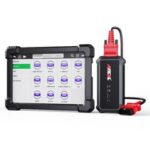When you finance a vehicle in Michigan, your lender typically holds a security interest in it. This security interest grants them the right to repossess—or take back—your car if you fail to uphold the loan terms. Leased vehicles can also be repossessed for breaches of the lease agreement. Michigan law governs the repossession process, outlining creditor rights and borrower protections, including vehicle redemption and potential liability for remaining loan balances after sale. This article delves into the specifics of car repossession in Michigan, focusing on the procedures and what you need to know.
How Many Missed Payments Before Repossession in Michigan?
Michigan law permits lenders to repossess your vehicle as soon as you default on your loan or lease agreement. Michigan repossession law is quite strict in this regard. Default most commonly occurs due to missed car payments. However, other violations of your lease or loan terms, such as failing to maintain adequate insurance coverage, can also trigger a default. Your specific loan or lease contract will define exactly what constitutes a default. It’s crucial to review your documents carefully to understand your obligations and avoid surprises.
Will You Receive a Repossession Warning in Michigan?
Michigan operates as a “self-help repossession” state. This means that, unlike some states, lenders in Michigan are not legally required to obtain a court order before repossessing your vehicle. In fact, they are not even obligated to provide you with advance notice of the repossession. The first indication you might have that repossession is imminent could be a late payment reminder from your loan servicer, which may mention the possibility of repossession for non-payment. Because of Michigan’s self-help repossession laws, it’s essential to be proactive in communication with your lender if you anticipate payment difficulties.
Preventing Vehicle Repossession in Michigan
The most straightforward way to halt or prevent vehicle repossession is to bring your car payments current, including any accrued late fees. To determine the exact timeframe you have to catch up, refer to your loan documents or any notice of default you may have received. Direct communication with your loan servicer is often the most effective approach. Contacting them by phone can facilitate immediate payment arrangements, as mailed payments may experience delays, and online systems can sometimes present challenges for payments on overdue accounts.
If you are facing temporary financial hardship, contacting your loan servicer promptly is crucial. Explore options such as forbearance, which could temporarily suspend your payments, or a permanent modification of your payment schedule. For individuals facing more complex financial situations, consulting a bankruptcy attorney may be beneficial. Chapter 13 bankruptcy can sometimes provide a pathway to save your vehicle from repossession.
Understanding Repossession Companies’ Actions in Michigan
Vehicle repossession laws are generally codified within states’ Uniform Commercial Code (UCC), a standardized set of laws governing commercial transactions. Repossession companies in Michigan act as specialized debt collectors and are required to hold a valid collection agency license and be bonded under state law.
Repo agents in Michigan must adhere to “breach of the peace” restrictions during a repossession. This prohibits them from using violence, threats of violence, or involving law enforcement without a court order. They cannot deceive you to gain access to your vehicle, nor can they enter secured areas like locked garages or gated properties to seize it.
However, repo agents are permitted to take your car from open locations such as your driveway or a public place like a repair shop. If you are present during a repossession, you have the right to verbally request the agent to cease and leave your property. If the agent disregards this request and proceeds, it might be considered a breach of the peace by the courts. It is imperative not to physically obstruct the agent or use force, even if you believe the repossession is wrongful, as such actions could lead to violence or criminal charges.
Understanding vehicle repossession procedures is crucial for car owners facing financial difficulties.
Personal Property Left in a Repossessed Car
Lenders in Michigan are not entitled to keep or sell any personal belongings left inside your repossessed vehicle. You should receive a notification outlining the procedure for retrieving your personal items. To avoid complications, it is advisable to remove all personal property from your vehicle if you anticipate repossession.
What Happens After Repossession in Michigan?
After repossession, your vehicle is typically sold, either through a public auction or a private sale. You are legally entitled to receive notice of the sale’s date and location. Michigan law mandates that car creditors must sell repossessed vehicles in a “commercially reasonable manner,” ensuring they are sold using standard practices to achieve a fair market price. If your car is sold at public auction, you are permitted to bid on it yourself.
The proceeds from the vehicle sale are first applied to cover the lender’s repossession expenses, associated fees, and then towards your outstanding auto loan balance. This balance might encompass not only the principal and interest but also additional charges outlined in your loan agreement, such as lease termination fees or prepayment penalties, if applicable. If the sale generates surplus funds exceeding the total amount owed, you are entitled to receive the excess.
However, it’s more common that the sale proceeds are insufficient to cover the entire debt, particularly if you had an upside-down car loan. In such cases, you will be responsible for the remaining deficiency balance to the lender, and Michigan law allows lenders to pursue legal action to recover this amount.
Deficiency Balance After Repossession in Michigan
Following vehicle repossession, the lender calculates the total amount owed by adding repossession costs and any contractually agreed-upon fees to your outstanding balance. While the auction proceeds reduce this liability, a deficiency remains if the sale price is less than the total debt. Voluntarily returning your vehicle before repossession might slightly reduce the deficiency balance by eliminating repossession costs.
Vehicle Redemption Rights in Michigan
Michigan law provides you with the right to redeem your vehicle after repossession. The repossession notice you receive will specify the redemption deadline. Redemption typically requires paying the entire outstanding loan amount, not just the past-due payments, along with any accrued fees and costs. These additional expenses can include storage fees, sale preparation costs, and attorney fees. The pre-sale notice should contain contact information to obtain the exact redemption amount and instructions on how to redeem your vehicle.
Finding More Information on Michigan Repossession Laws
For more detailed information on repossession laws and your rights in Michigan, you can consult the Michigan Uniform Commercial Code and seek legal advice from a qualified attorney specializing in consumer rights or debt collection practices. State bar associations and legal aid societies are also valuable resources for legal information and assistance.


